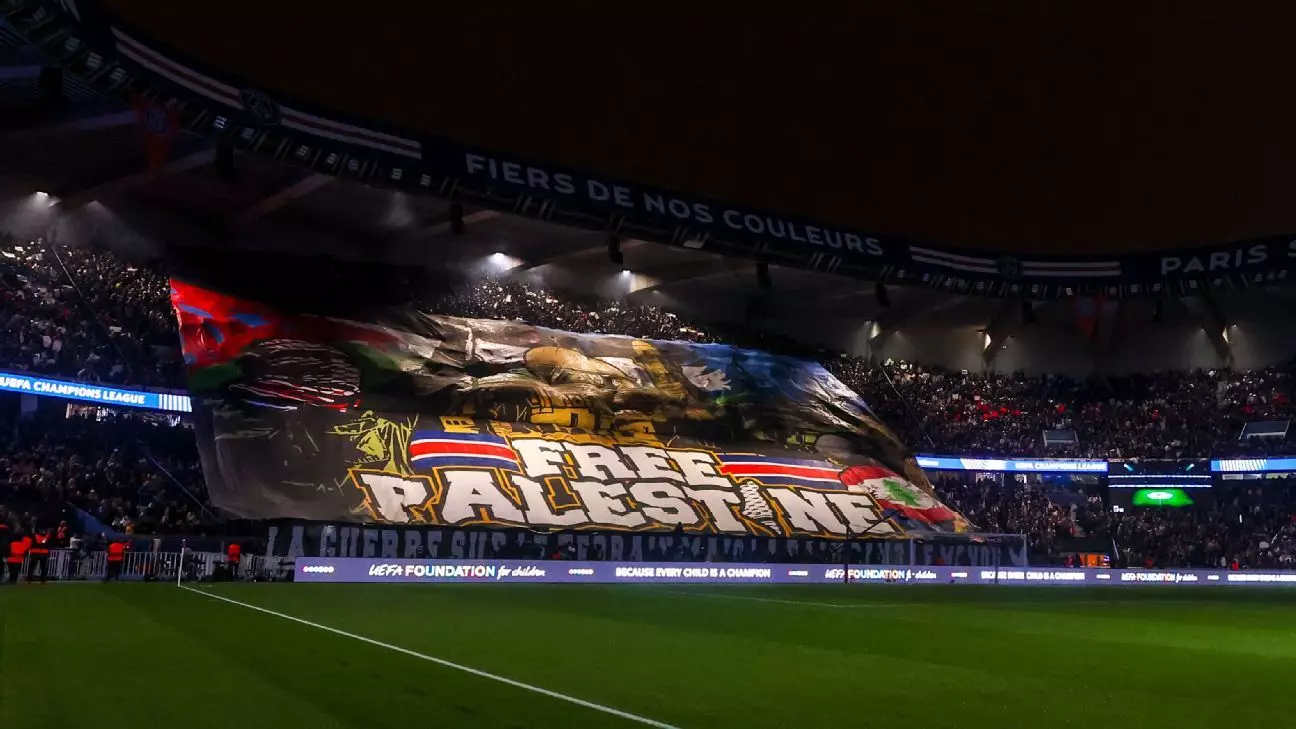In an extraordinary display of political expression, fans from Paris Saint-Germain’s Auteuil Kop unveiled a massive “Free Palestine” banner prior to their UEFA Champions League match against Atlético Madrid. The timing of this protest is particularly poignant, as it occurred just days before an international clash between France and Israel in the Nations League, raising significant questions about the role of sport in political discourse. The banner’s accompanying phrase, “War on the pitch, but peace in the world,” further emphasizes the desire for separation between athletic competition and global political strife.
The reaction from PSG was swift and resolute. The club stated they had no knowledge of any planned displays of a political nature. PSG emphasized that the Parc des Princes should serve as a sanctuary for soccer enthusiasts, devoid of political rhetoric. Such a stance underscores a growing dilemma faced by sports organizations worldwide: how to navigate expressions of social and political relevance while maintaining a focus on the sport itself. The divide between sportsmanship and political activism is increasingly blurred, and this incident serves as a tangible example of that conflict.
French Interior Minister Bruno Retailleau’s strong condemnation of the banner showcases the potential ramifications of such displays. His statement labeling the banner “unacceptable” indicates a governmental response that may transcend mere criticism, possibly leading to sanctions against PSG. The concern lies not only in the immediate fallout for the club but also in a broader discourse surrounding freedom of expression within sports venues. Retailleau’s approach raises pressing questions about the boundaries of protest within sporting events, especially given France’s diverse demographic landscape.
Historically, stadiums have been venues for political expression, yet they are similarly battlegrounds for controversy, as displayed by Celtic’s recent fine for the similar display of Palestinian flags. In light of France’s elaborate tapestry of cultural identities, the upcoming Nations League match at the Stade de France becomes even more critical. Security issues are paramount, especially considering France hosts the largest Jewish community in Europe alongside a significant Muslim population, highlighting the delicate balance officials must strike to ensure safety while respecting the freedom of expression.
As the world watches this situation unfold, it is essential to consider the implications for future sporting events. Will we see a clampdown on political expressions in stadiums, further pushing fans to the fringes of dialogue? Conversely, could this incident pave the way for greater acceptance of political discourse within sports, allowing expressions of solidarity and dissent? The answers to these questions will shape the relationship between sports and society at large, challenging clubs, governments, and fans alike in reconciling the passionate expressions inherent to the game with the need for a respectful, inclusive atmosphere.
This incident at PSG illustrates the complex interplay of sports and global politics, a nuance that will continue to evolve in the coming years as societies grapple with issues of identity, expression, and the very purpose of sport itself.
